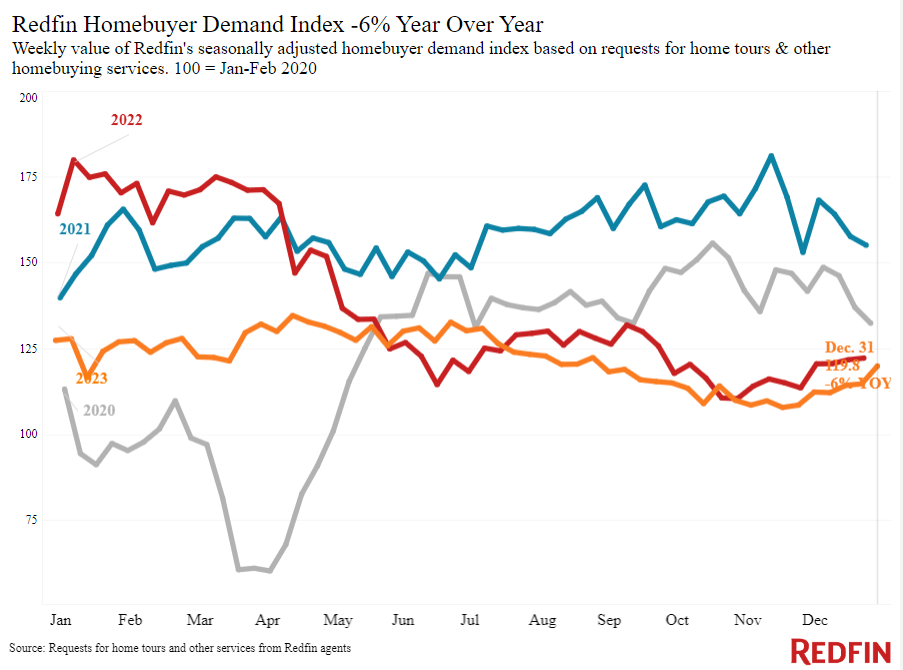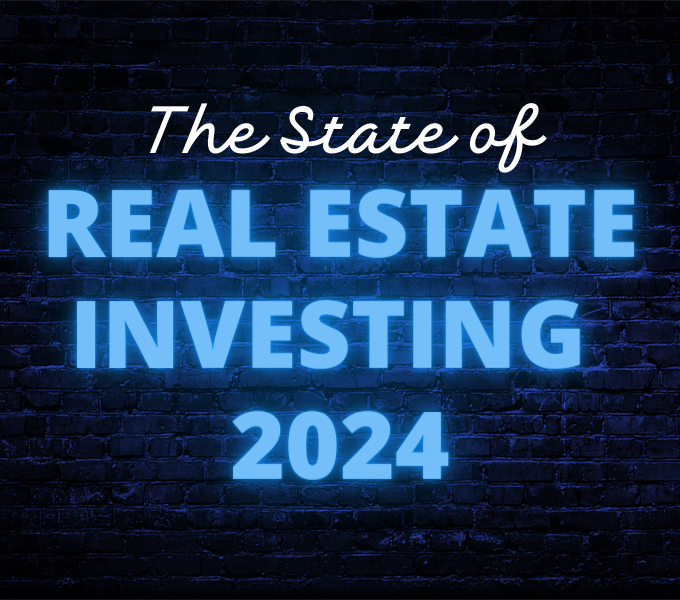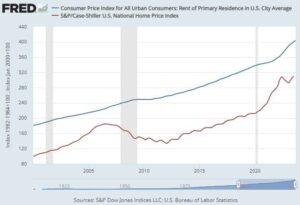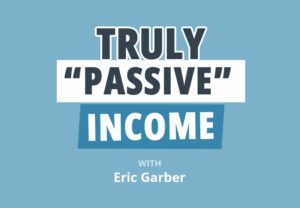Mortgage payments are decreasing, which has some house hunters returning to the real estate market. According to the latest data from Redfin, for the four weeks ended Dec. 31, 2023, the median mortgage payment was down 14% compared to October’s all-time high. Meanwhile, the weekly average rate in early January 2024 was at 6.66% for a 30-year fixed-rate mortgage, compared to 7.79% in October.
This means homebuyers are finally getting a break from skyrocketing interest rates. And as rates start to dip, some house hunters are taking advantage of an uptick in listings. Redfin’s Homebuyer Demand Index, which measures requests for tours and homebuying services, was up 10% at the end of December from the previous month to its highest level since August, although it was down 6% year over year.
“It’s all about perspective,” said Las Vegas-based Redfin agent Shay Stein in a press release. “Two years ago, buyers would have cried about a 6% mortgage rate. Now, they’re happy they’ve dropped down to the mid-6’s.”
What The Data Says
The dip in mortgage rates is having an impact on the housing market. Pending sales were down 3.3% year over year, the smallest decline since January 2022. Meanwhile, new listings were up 9.5% year over year, with active listings falling 3.9% in the same period.

Of course, the data isn’t the same across the country. In some metro areas, sales fell while pending sales increased. Regions of Florida had some of the most significant sales price increases over the year, which is in line with other data, as the Sunshine State remains a popular homeowner destination.
| Metros With Biggest Year-Over-Year Increase in Pending Sales | Metros With Biggest Year-Over-Year Decrease in Pending Sales |
|---|---|
| Dallas (11.3%) | Providence, Rhode Island (-15.4%) |
| Milwaukee (9.3%) | New Brunswick, New Jersey (-13.6%) |
| Cleveland (6.3%) | Newark, New Jersey (-12.5%) |
| San Jose, California (5.6%) | New York City (-10.8%) |
| Chicago (5.6%) | Atlanta (-10%) |
Meanwhile, home prices in some areas like Austin, Texas, and San Francisco are on the decline as more people are starting to leave some once-popular metro areas.
| Metros With Biggest Year-Over-Year Increase in Median Sale Price | Metros With Biggest Year-Over-Year Decrease in Median Sale Price |
|---|---|
| Newark, New Jersey (18.2%) | Fort Worth, Texas (-3.1%) |
| Anaheim, California (18.1%) | Austin, Texas (-1.7%) |
| West Palm Beach, Florida (15.2%) | San Francisco (-1.1%) |
| Fort Lauderdale, Florida (15.1%) | Denver (-0.4%) |
New listings have also declined in 11 metro areas, including San Francisco (-35.3%), Atlanta (-11.5%), and Providence, Rhode Island (-9.8%). However, they’ve jumped in some major cities, including Phoenix (23.5%), as well as Austin, San Antonio, and Dallas, Texas (all up 20.9%, 18.3%, and 16.4%, respectively).
What This Means for Investors
So, what does all this data mean for real estate investors? First, the decline in mortgage rates is encouraging, even if it’s still relatively high overall. And some experts think it could encourage more house hunters to start searching for homes again.
Shri Ganeshram, founder and CEO of real estate site Awning, told Bankrate he expects an increase in activity at the start of the year, which “could lead to a more dynamic market than usual for this period.”
Meanwhile, Rick Sharga, founder and CEO of CJ Patrick, also told Bankrate he anticipates a modest first quarter of weak sales and modest price increases. But dropping mortgage rates “will probably continue to decline through the first quarter—bringing more prospective buyers back into the market.”
Still, it’s possible that rates won’t drop far enough for current owners to put their homes on the market, which means house hunters could continue facing a supply crunch.
The Bottom Line
Mortgage rates are still high, but the recent decline has been welcoming for homebuyers. And while sellers are generally still not tempted to put their homes on the market given the current rates, keeping supply low, there are opportunities for house hunters.
This is especially true in metro areas with falling demand. In Texas, prices are falling, even as new listings increase. With signs that the Federal Reserve could cut rates this year, that means mortgages could get cheaper, which would likely increase demand for real estate.
In other words, if you find a home you can afford, now might be the time to buy—before the competition increases.
More from BiggerPockets: 2024 State of Real Estate Investing Report
After more than a decade of clearly favorable investing conditions, market dynamics have shifted. Conditions for investment are now more nuanced, and more uncertain. Download the 2024 State of Real Estate Investing report written by Dave Meyer, to find out which strategies and tactics are best suited to win in 2024.

Note By BiggerPockets: These are opinions written by the author and do not necessarily represent the opinions of BiggerPockets.
- SEO Powered Content & PR Distribution. Get Amplified Today.
- PlatoData.Network Vertical Generative Ai. Empower Yourself. Access Here.
- PlatoAiStream. Web3 Intelligence. Knowledge Amplified. Access Here.
- PlatoESG. Carbon, CleanTech, Energy, Environment, Solar, Waste Management. Access Here.
- PlatoHealth. Biotech and Clinical Trials Intelligence. Access Here.
- Source: https://www.biggerpockets.com/blog/pending-home-sales-increase-as-mortgage-rates-continue-to-fall
- :has
- :is
- :not
- $UP
- 1
- 11
- 15%
- 16
- 2%
- 20
- 2022
- 2023
- 2024
- 23
- 24
- 31
- 600
- 7
- 9
- a
- About
- According
- across
- active
- activity
- ADvantage
- again
- Agent
- ago
- All
- already
- also
- Although
- an
- analytics
- and
- anticipates
- ARE
- areas
- AS
- At
- Atlanta
- AUGUST
- austin
- author
- back
- BE
- Beach
- been
- being
- BEST
- Biggest
- Block
- border
- Bottom
- Break
- but
- buyers
- by
- california
- CAN
- ceo
- cheaper
- Cities
- City
- clearly
- COM
- compared
- competition
- conditions
- continue
- could
- country
- course
- crunch
- Current
- Cut
- Dallas
- data
- Dave
- dec
- decade
- December
- Decline
- decrease
- decreasing
- Demand
- destination
- Dip
- do
- does
- down
- download
- Drop
- dropped
- Dropping
- dynamic
- dynamics
- Early
- encourage
- encouraging
- end
- ended
- enough
- Enter
- especially
- estate
- Ether (ETH)
- Even
- expects
- facing
- Falling
- far
- favorable
- Federal
- federal reserve
- felt
- Finally
- Find
- First
- five
- florida
- For
- founder
- Founder and CEO
- four
- Francisco
- from
- generally
- get
- getting
- given
- had
- happy
- Have
- having
- he
- Hidden
- High
- highest
- Home
- Homes
- House
- housing
- housing market
- However
- http
- HTTPS
- ID
- if
- Impact
- in
- Including
- Increase
- increased
- Increases
- index
- interest
- Interest Rates
- into
- investing
- investment
- Investors
- island
- IT
- ITS
- January
- Jersey
- keeping
- LAS
- latest
- lead
- Leave
- Level
- LG
- like
- likely
- Listings
- Low
- lower
- major
- Market
- Markets
- max-width
- mean
- means
- Meanwhile
- measures
- Metro
- Meyer
- might
- modest
- Month
- more
- Mortgage
- Mortgages
- most
- necessarily
- New
- New Jersey
- None
- now
- october
- of
- on
- open
- Opinions
- opportunities
- Other
- out
- over
- overall
- owners
- palm
- patrick
- payment
- payments
- pending
- People
- period
- perspective
- phoenix
- plato
- Plato Data Intelligence
- PlatoData
- Popular
- possible
- press
- Press Release
- previous
- price
- Prices
- probably
- prospective
- put
- Quarter
- Rate
- Rates
- real
- real estate
- real estate market
- recent
- Redfin
- regions
- relative
- relatively
- release
- remains
- report
- represent
- requests
- Reserve
- respectively
- returning
- round
- Said
- sale
- sales
- same
- San
- San Francisco
- searching
- Sellers
- Services
- Shay
- shifted
- significant
- Signs
- since
- site
- some
- sponsor
- start
- Starting
- State
- Still
- strategies
- sunshine
- supply
- tactics
- taking
- texas
- than
- that
- The
- The Weekly
- their
- There.
- These
- think
- this
- this year
- Through
- time
- Title
- to
- told
- tours
- true
- Uncertain
- usual
- was
- weekly
- Weeks
- welcoming
- WELL
- were
- What
- which
- while
- win
- with
- words
- worth
- would
- written
- year
- years
- york
- you
- zephyrnet












